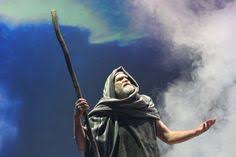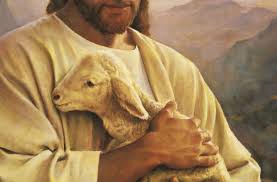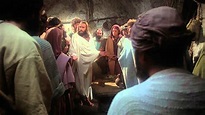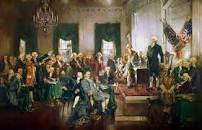Background Passage: Acts 20:7-12, 2 Timothy 15
I thoroughly enjoy college sports. As a graduate of Texas Tech, I am a Red Raider through and through. While I suffer a bit each fall while our football team tries to find its way, my blood runs with a healthy mixture of scarlet and black during baseball and basketball season. A trip to the final four and to the national championship will do that to you.
Michelle Trotter, the girls’ basketball coach in the Crosby Independent School District, is a committed Christian. She posts motivational moments on her Facebook pages that speak as much to life as to the game she loves. She recently posted an interview with Chris Beard, the head men’s basketball coach at Tech. In it, Coach Beard talked about the value of staying uncomfortable.
“Comfortable gets you beat. You see it all the time in sports. Life’s the same way. You have a great day, a great win, and it takes the edge off. It takes a special person, we use the term “elite,” to remain uncomfortable…Everyone has high expectations and focus in times of adversity. Only the elite people can push themselves each day to stay uncomfortable. Uncomfortable is where growth comes from.”
He’s got a point. As soon as we get comfortable, we get complacent. When we’re complacent, we don’t work as hard. To adapt his phrase. Complacency gets you beat, in sports, in life and in faith.
There is a rather obscure passage of scripture in Acts that may speak to this idea…at least in my weirdly wired mind.
Paul is leaving Philippi to head back through Macedonia for another round of preaching and teaching. Along the way, he spent a week in Troas on the coast. Gathering the believers together on his last day in the city, he began to impart his words of wisdom on redemption and responsibility.
I can imagine this kind of meeting happened frequently in the early church. They needed to be taught the fundamental truths of the teachings of Jesus, the theology of their faith. They also needed to learn how to put that faith in practice, the organization and structure of their ministry. It would require a great deal of teaching and reteaching. I’m guessing this was a reteaching moment.
Luke tells us that Paul called the people together for a mid-day meal. It was a working lunch. As they ate, Paul talked and taught. He had a lot to say to the standing-room-only crowd. As the sun set, the apostle was still going strong speaking past midnight.
As the night wore on, we find Eutychus perched in a third-story window, one leg in and one leg out, his back against the narrow window frame. Perhaps it was his short stature (think Zacchaeus) that made him think the third-story window was a good idea. Yet, there he was, high above the crowd listening to the apostle speak.
Is it possible that God’s word and work can feel so ordinary…so comfortable…to us that grow complacent in our understanding, believing that we know everything we need to know? That our reading and study of scripture become too routine? That we take our knowledge of God’s grace and love as that of an ever-present friend that we take for granted? Is it possible that we hear a scripture explained to us one time and assume that is all God has to reveal? Is it possible to believe you know it all and don’t need to hear the same message again?
I don’t know if that was Eutychus’ problem or if he was just tired after a long day, but Luke tells us he fell asleep. As he drifted off, he fell, sadly, out the window and to his death. It seems not only does comfortable get you beat, it also gets you killed.
The good news is that Paul, with the power of the Holy Spirit, gave life again to the young man in a miracle reminiscent of those performed by Jesus. When Paul finally wrapped up his presentation, the sun was peeking over the horizon. Eutychus walked home with his family and friends, rejoicing in God’s goodness.
It’s a peculiar story set in scripture, one in which there is no spiritual truth obviously revealed. No incident of any deep, historical significance. We see God working a miracle through Paul’s undying faith, but there is no direct message. So, in absence of a more direct word from God, you have to open your heart to the spirit’s leading.
So, I want to talk about this idea of staying uncomfortable. Avoiding complacency.
You and I have both seen people who come to know Christ as older adults. Their passion for this new, redeemed life, infuses their hearts and minds. Every passage of scripture is eye-opening. Every lesson they hear energizing. They hunger for God’s truth.
You and I have also seen people who allow time to diminish their hunger and thirst. Their salvation is a one-time thing, guaranteed by scripture, but they never engage in the process of salvation…the on-going growth and development of our spiritual selves. What they read and hear in scripture is no longer profound. This little light of truth gets hidden under their bushel. They no longer let it shine. They get too comfortable in doing church.
I recognize those people because I’ve been those people. I know how easy it is to fall into that trap. Complacency leaves us feeling empty. As one pastor wrote, “When we are complacent, our life of faith becomes just about God, not (a life) for God. Not (a life) with God.”
The problem gets magnified when too many of us grow comfortable in our faith. When too many of us rest on our own understanding, the church begins to suffer and slide. Attendance drops. Membership falls. Worship rarely inspires. Our outreach suffers. People find other things to do.
It is the “elite” Christian who learns to remain uncomfortable. We do tend to sharpen our focus in difficult times and allow it to dim when things are going well. If we can push ourselves each day to stay uncomfortable, we can growth in spiritual maturity.
To remain uncomfortable in our faith is to remain open to being taught. Avoiding complacency in our faith allows us to grow. It’s choice. It’s intention.
Our church has a series of stained-glass windows depicting the seven “I am” statements of Jesus. Our pastor is now preaching a sermon series on these statements. In his almost 40-year tenure with us, Dr. Lyles has preached on these “I am” statements at least five times, he said.
If I’m a comfortable, complacent Christian, I might write off the sermon series. “I’ve heard it before. There is nothing new here I need to learn.” Been there. Heard that. Bought the t-shirt.
If I am uncomfortable, open and willing to be taught, the message will resonate under the inspiration of the Holy Spirit with truth I need to hear and apply in this time of my life. Being uncomfortable is what makes us hunger and thirst for more of God’s instruction. It is what gives our faith its life.
Paul gave words of advice to his pastoral protege Timothy. The words are helpful for the uncomfortable Christian.
“Do your best to present yourself to God as one approved, a worker who does not need to be ashamed and correctly handles the word of truth.” (2 Timothy 2:15)
Most of us learned that verse from the King James Version of the Bible translated into English in 1611. It starts off with the phrase, “Study to show thyself approved…” in the 17th century, the word “study” carried the meaning of “striving” or “being diligent.”
So Paul is reminding Timothy and us to do our best. You see, being an “elite” Christian, like the “elite” athlete, requires hard work. Daily practice. Intense study. Commitment to fundamentals. Willingness to learn a new way of doing things. To avoid the complacency of the routine and embrace the idea of being uncomfortable in the moment.
“Blessed is he who hungers and thirsts for righteousness…” Jesus could easily be saying, in my less poetic terms, “The happy person is the one who knows he doesn’t know and diligently keeps his heart open for the next tidbit of spiritual wisdom and insight that God wants to reveal.”
Blessed are the uncomfortable.
Coach Beard values hard work from his players. He demands it. They practice hard in order to play hard. His recruits are not always the most talented, but they are workers. He finds people knowing that if they put in the work, they will grow to be better basketball players, better people.
Paul would understand this. This passage from Paul to Timothy tells him to be a worker. We know people among our circle of friends or within our church who are workers. They cannot sit idle. If there is work to be done, you’ll find them in the crew.
We also know people steeped in scripture who never quit studying the Bible. These people are constantly trying to work at this business of spiritual growth and maturity to ensure their lives are lived consistent with God’s word of truth. Workers are never complacent with their relationship with God in word or deed.
Based on all of that, this is the part of the Eutychus story I like. Paul ran to the young man who fell from the window. Gathered his lifeless form in his arms. When Paul wrapped his arms around Eutychus, he said, “There is still life in him.” In the next moment Eutychus is awake and walking.
I hope that when I fall victim to my own complacency that the Holy Spirit will wrap his arms around me and declare, “There is still life in him.” I hope that spiritual hug gets me up and walking again in faith.
Eutychus got a second chance at life. God is a great God of second chances. When we grow too comfortable, it might be time to shake the tree. To move our faith to the edge of our comfort zone and beyond with a sense of wonder about what God will reveal to you tomorrow.
So, if you’re feeling a little too comfortable in your faith, this much I know. There is still life in you.









